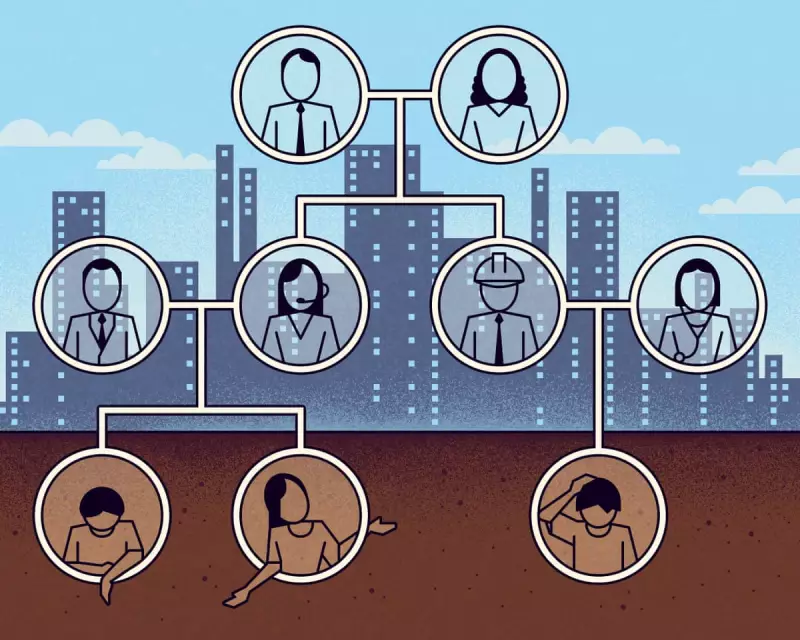
The Silent Epidemic: Britain's Million Young People Left Behind
Britain faces a hidden jobs crisis of staggering proportions, with 946,000 young people aged 16-24 currently classified as NEET - not in education, employment or training. The latest Office for National Statistics figures reveal a generation living on the social and economic margins, despite government claims that the numbers should be "taken with a pinch of salt" due to survey limitations.
Broken Systems and Lost Generations
Roman Dibden, chief executive of employment charity Rise Up, understands this crisis intimately. Having left school at 14 and experienced unemployment himself, he now helps young people facing similar struggles. "We're talking about the Covid generation," he explains. "A lot of it's about anxiety and confidence. Things that other people take for granted - the way you walk into a room, eye contact - they've not developed those skills."
The charity has successfully placed 120 people into work this year alone, but Dibden describes a system stacked against young people. Many face 150-200 job applications without success, leading to disillusionment and withdrawal. Alarmingly, 44% of NEETS have completely disengaged from state support systems, while others move onto sickness benefits as mental and physical health issues dominate their lives.
Double Jeopardy: Pandemic Fallout Meets AI Revolution
The crisis has been compounded by two seismic shifts: the legacy of Covid lockdowns and the rapid advance of artificial intelligence. The pandemic created what experts call a "generational debt" in social development, while AI is eliminating the entry-level positions that traditionally launched careers.
Evidence is mounting that companies are reducing junior hiring in favour of automation. One tech founder quoted in the article stated bluntly: "There's just no reason to deal with young employees." Major companies like Shopify now require managers to justify why AI can't perform a job before hiring humans.
Meanwhile, the government's response has drawn criticism for focusing on punitive measures. Plans for mandatory work placements for those on universal credit for 18 months or more come with the threat that "those who do not take up the offer could face being stripped of their benefits."
Systemic Failures Demand Radical Solutions
Experts Xiaowei Xu from the Institute for Fiscal Studies and Louise Murphy from the Resolution Foundation argue that the problem requires fundamental systemic changes. They point to an education system that still prioritises academic success over vocational routes and further education colleges weakened by years of underfunding.
The situation is particularly acute in employment sectors traditionally dominated by young workers. Since last summer, 170,000 jobs have disappeared from UK payrolls, with nearly half affecting workers under 25 - a stark example of the "last in, first out" principle in action.
As Rachel Reeves prepares to address the NEET crisis in her budget, the question remains whether political solutions will match the scale of the problem. With young lives becoming increasingly precarious, the warning signs are clear: if anxiety and withdrawal turn to anger, the consequences could reshape British society for generations.





